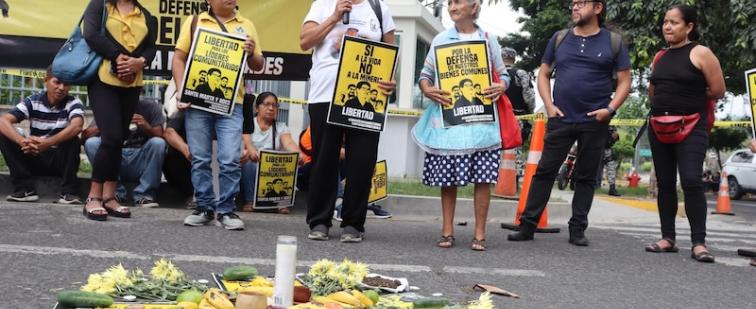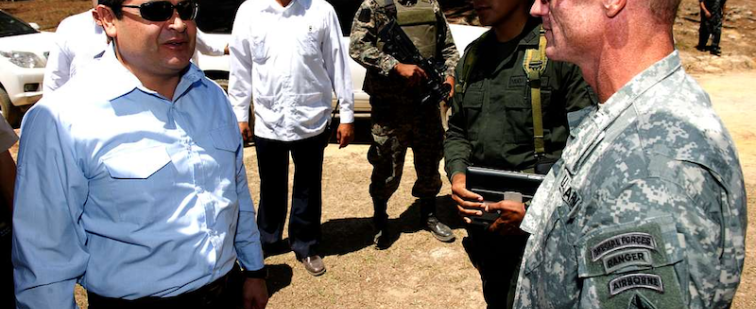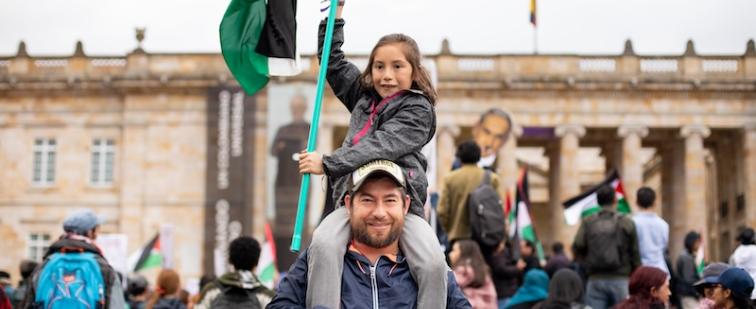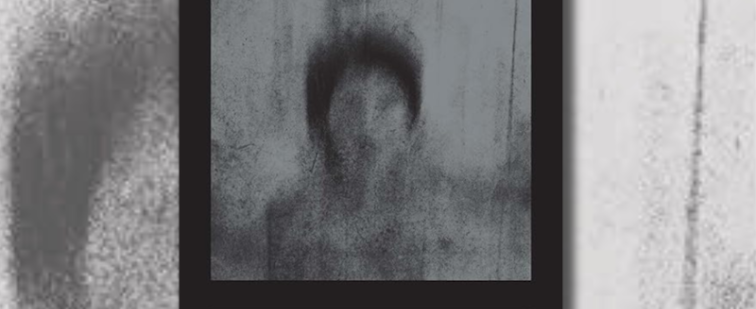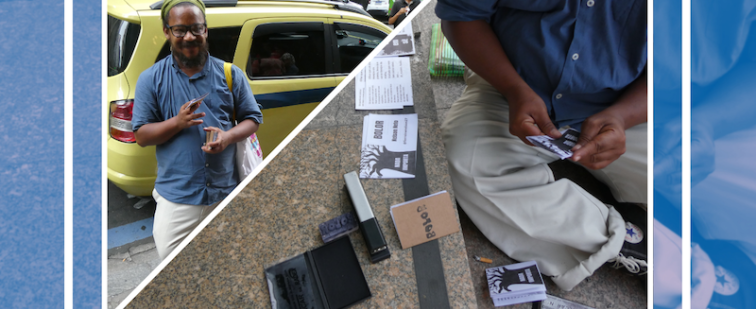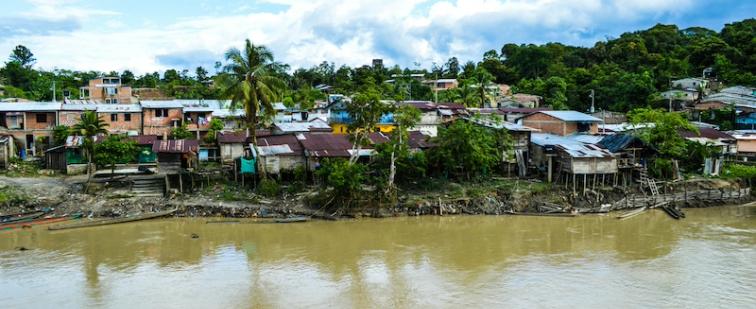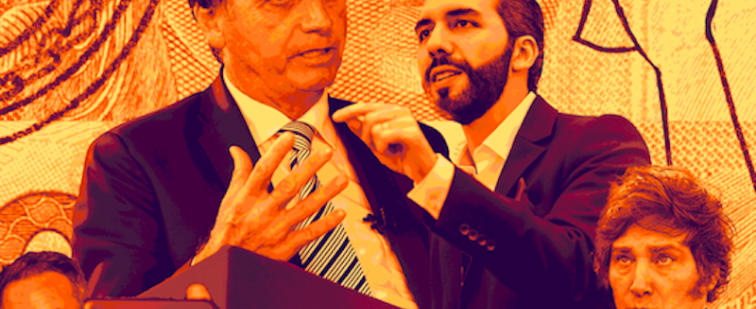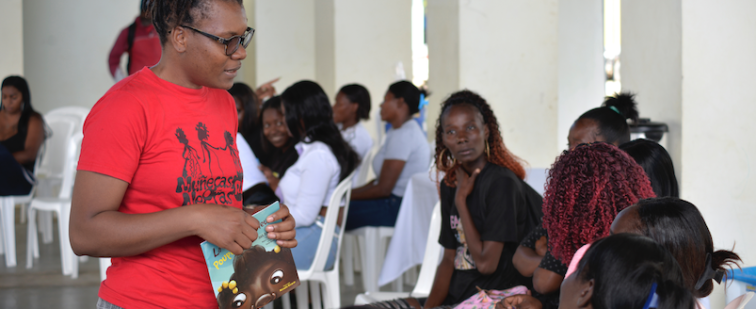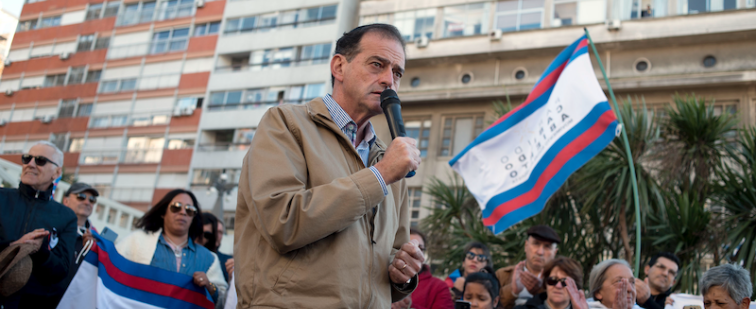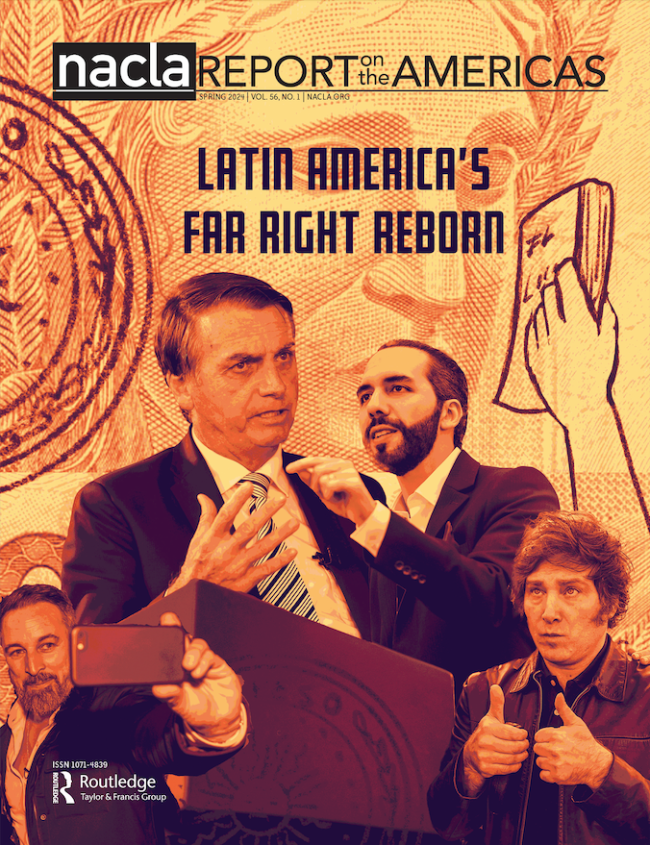Home
There is a direct correlation between the more than $5 billion in military assistance the United States has given Colombia since 1999 and a dramatic spike of extrajudicial killings in the country, according to a report released on July 29 by the Fellowship on Reconciliation and the U.S. Office on Colombia. This not only flies in the face of U.S. officials who claim that Plan Colombia has been a complete success, but also the Leahy Law, a U.S. law that forbids providing funding to military units that are treated with impunity after committing abuses. The report states: “Our analysis strongly suggests that implementation of Leahy Law in Colombia requires suspension of assistance to nearly all Army fixed brigades and many mobile brigades."
Even though a federal judge blocked key controversial provisions of Arizona's new immigration legislation, one of the harshest anti-immigrant laws ever passed in the United States still went into effect on July 29 in that state. This law, however, didn't come out of thin air. The "zero tolerance" logic behind the law mimics what has already been established by the federal government. Indeed, the confluence of these immigration, military, border, and economic policies in Arizona has not only made it the country’s primary laboratory for draconian immigration policies, but also connects the U.S. border zone to a broader international context of “global apartheid.”
This article originally appeared in the July/August 2010 edition of NACLA Report on the Americas.
The year 2009 was arguably the worst year of economic downturn in Mexico since the onset of the Great Depression of the 1930s. Mexico's GDP fell by an estimated 6.5% last year, an economic collapse that was consistently downplayed by the country's political and economic elite. When Mexican President Felipe Calderón asserts, as he often does, that this crisis was caused by “external” forces and factors, he is dead wrong: As the great recession of 2009 showed so clearly, Mexico has become an appendage of the U.S. economy.
This article originally appeared in the July/August 2010 edition of NACLA Report on the Americas.
On July 1 the Peruvian government notified Father Paul Mc Auley, an environmental activist in the northern Amazon region, that it was rescinding his residency in the country. The order to expel the British priest comes on the heels of his efforts to ensure accountability for the massive June 19 oil spill of PlusPetrol, an Argentine oil company with a safety record equal to that of British Petroleum. This further indicates an unofficial governmental policy in Peru to stifle voices that highlight the social and environmental costs of the country’s resource development agenda.
NACLA denounces the State Department’s decision to deny a visa to Colombian TV journalist Hollman Morris. Morris was slated to receive the Samuel Chavkin Award for Integrity in Latin American Journalism, given by NACLA in recognition of his brave and uncompromising coverage of the armed conflict in Colombia. The visa denial appears to be intended to punish Morris for his reporting on the Colombian peace and human rights movement. With this, Washington has joined the Colombian government in tarring Morris as a “publicist for terrorism,” in the words of Colombian president Álvaro Uribe.
At a June 5 meeting of coca farmers in Cochabamba, Bolivian president Evo Morales threatened to expel USAID from Bolivia, accusing the U.S. governmental organization of lending financial support to groups that oppose his government. The announcement was made just days after the United States met with Bolivia, as part of ongoing talks aimed at reestablishing full diplomatic relations, after a damaging political dispute in 2008. While in public officials are giving glowing reviews of the progress of the negotiations, reality reveals that reconciliation may still be a long way away, especially as the United States continues to meddle in Bolivian affairs.
The U.S. State Department is secretly funneling millions of dollars to Latin American journalists. Newly released documents show that between 2007 and 2009, the State Department channeled at least $4 million to journalists in Bolivia, Nicaragua, and Venezuela through the Washington-based Pan American Development Foundation (PADF). Thus far, only documents pertaining to Venezuela have been released. They reveal that the PADF, collaborating with Venezuelan NGOs associated with the country’s political opposition, has been supplied with at least $700,000 to give out journalism grants and sponsor journalism education programs. In funding the Venezuelan news media, the United States is funding one of the opposition’s most powerful weapons against President Hugo Chávez.
On June 22, Jamaican police arrested Christopher “Dudus” Coke in the Tivoli Gardens neighborhood of Kingston and immediately delivered him into U.S. custody. Many Jamaicans are hoping that Coke will now reveal the long history of connections between the country’s political leaders, its business elite, and its gunmen in the street. Such revelations are likely to illuminate past actions of the CIA, which helped create one of Jamaica’s most powerful organized crime organizations, the Shower Posse. These links are ever more important as the United States is poised to invest millions of dollars to make the Caribbean its newest front in the drug war, ostensibly fighting some of the same personalities and groups they themselves helped create.
On July 4, Oaxacans made history: After 80 years of one-party rule, an opposition gubernatorial candidate defeated the Institutional Revolutionary Party (PRI) at the polls. However, Oaxaca's lame duck and divisive governor, Ulises Ruiz Ortiz, will hand over a volatile political climate to the new administration. Oaxaca still lives in the wake of the 2006 social conflict that nearly drove Ruiz Ortiz from office. Now this tension is most prominently symbolized by a low-intensity war that continues in San Juan Copala where on April 27 gunmen ambushed an aid caravan to the town, killing two activists.
Grassroots Haitian movements for social justice have set themselves a formidable task: Not only addressing the ongoing humanitarian crisis, but also challenging the reconstruction effort to include their leadership and avoid reproducing the conditions that helped make the January 12 earthquake so disastrous. As a popular Haitian saying goes, "We are bamboo. We bend, but we don't break." This expression of resolve in the face of adversity is in wide circulation in Haiti these days.
This article originally appeared in the July/August 2010 edition of NACLA Report on the Americas.

